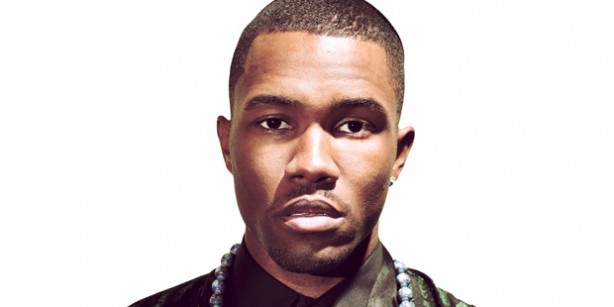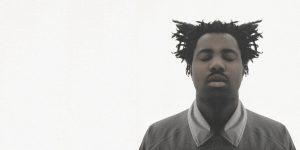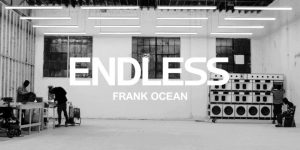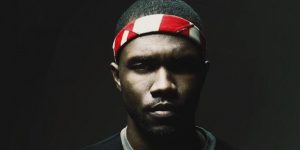 Music
Music
TRENDSPOTTING: a Frank discussion about hip-hop and sexuality
by Richard Trapunski
July 5, 2012
In the early hours of yesterday morning, Frank Ocean opened up his Tumblr and posted a stunningly poetic, achingly honest account of his unrequited first love, painful maturation and artistic coming-of-age. The rising R&B star wrote with courage, clarity and nuance, and the media responded: “Frank Ocean Comes Out As Gay.”
That headline writers could take words like “sentimental songs… written in a language I could not yet speak,” “human beings spinning on blackness,” and “peace of mind raining like manna somehow” and reduce them to “gay” or even “bisexual” is both unfortunately unpoetic and problematically reductionist, but the 24-year-old chose an American holiday to share the passage, and bloggers and journalists were (as usual) compelled to hurry to “break” the story in limited time and limited characters.
Nowhere in his writing does Ocean use the words “gay,” “straight” or “bi”; instead the male pronoun seems almost incidental, secondary to the primal, essential heartbreak he felt at the relationship’s end, no doubt a major inspiration on his long-awaited Def Jam debut, Channel Orange. Opening up about a sexual orientation that doesn’t conform to the strict binary that exists in his genre is a brave risk, one that justifies its status as a (somewhat major) news story, but the fact that Frank Ocean chose to do so in such an artful, nuanced manner, in which norms are secondary to expression, hopefully speaks to a shifting tide in hip hop and R&B culture.
It’s a gradual creep, but there are signs the prevailing attitudes may be heading in a more tolerant direction. Sure, hip hop still often purports shouted, cartoonish “no homo” versions of sexuality and masculinity, attitudes that criticize the vulnerability of an artist like Drake for being “soft,” but dialogue about those prevailing, often hidden attitudes has recently opened up, even before Frank Ocean penned his Tumblr post.
Ironically, much of that conversation started because of the incendiary, brusque use of the word “faggot” by the group he aligns with, Odd Future. Group figurehead Tyler, The Creator has defended himself in numerous interviews, claiming that his use of the homophobic slur is intended only to shock, not to offend (an echo of an earlier attitude held by the 2000’s giant, Eminem). The rapper nonetheless offended many people (and his congratulatory tweet about Ocean’s letter affirms his possible guilt with the phrase “Im a Toilet”), but the group’s rising profile and unflinching adolescent defiance to back down opened a dialogue about language in hip hop culture that hasn’t closed back up since.
Fellow up-and-comer A$AP Rocky has gone on record calling homophobia in hip hop “retarded” (let’s leave that one aside for a second), Fat Joe urged closeted rappers to be open about their sexuality, Jay-Z “endorsed” gay marriage and Lil B titled an album I’m Gay to show that “words don’t matter” (before adding the copout parenthetical subtitle “I’m Happy.”) Some pundits have shirked at the notion that this important conversation is being led by straight males, but Frank Ocean’s non-hegemonic sexual identity could perhaps be an important chip in its unfurling.
Lately, females in hip hop have been a lot more open about their sexuality. Where Nikki Minaj’s pre-fame flirtations had a whiff of “I Kissed A Girl And I Liked It” pandering, young, female rap artists like Angel Haze, Azealia Banks and, another Odd Future member, Syd Tha Kidd, have taken wielded their bi and homosexuality in a much more autonomous manner.
Syd Tha Kidd, who makes up one half of The Internet, said in an interview, “When I first started really fucking with Odd Future heavy, my dad was like, ‘Really? They talk about some crazy shit and as a female, you’re slapping a lot of women in the face.’ I’m like, ‘That’s what I do. I slap bitches'”. That strange misogyny can also be glimpsed in her videos, in which she essentially plays the same “stud” role a male would in a rap video.
Like 20-year-old Azealia Banks, whose famous “I guess that cunt gettin’ eaten” line thrust her into the spotlight, Syd is simultaneously flaunting her sexuality and adopting the brash bravado of rap genre conventions.
Frank Ocean, however, is more of an R&B crooner than a rapper, and while the two genres certainly share characteristics and personnel (Ocean has become a favourite guest star of Jay-Z, Kanye West and Beyonce), they aren’t identical. R&B is typically a smoother, more soulful form, and one that accounts for more romantic, less aggressive forms of sexuality and love. In fact, artists like The-Dream (who wrote Rihanna’s “Umbrella” and Beyonce’s “Single Ladies”), Drake (who penned a song for Melanie Fiona) and Ocean (who ghostwrote songs for singers like Brandy before bursting into the spotlight) are used to writing from a straight, female perspective – male pronouns – if not under their own names.
Though it’s still often bound to certain forms, R&B is a malleable genre that can easily be treated with subtle, prosaic grace that privilege art over rigid sexual identity. Frank Ocean opened the floodgates. Maybe others will follow his lead.
Tags: Music, News, Frank Ocean, Trendspotting





